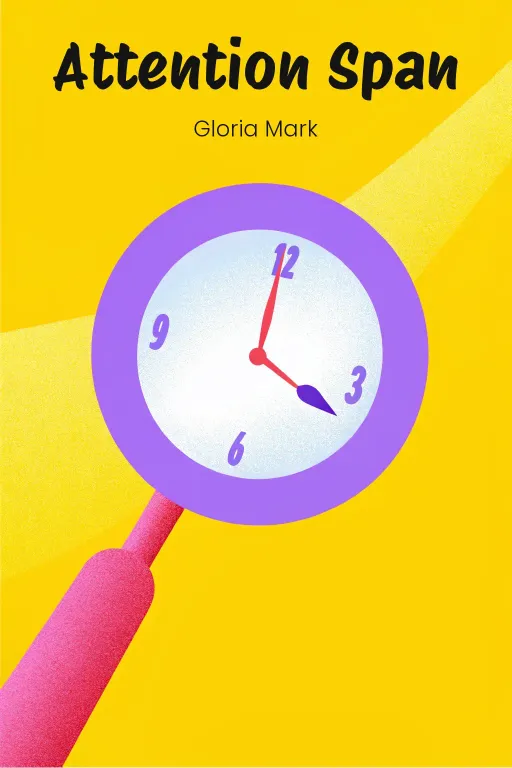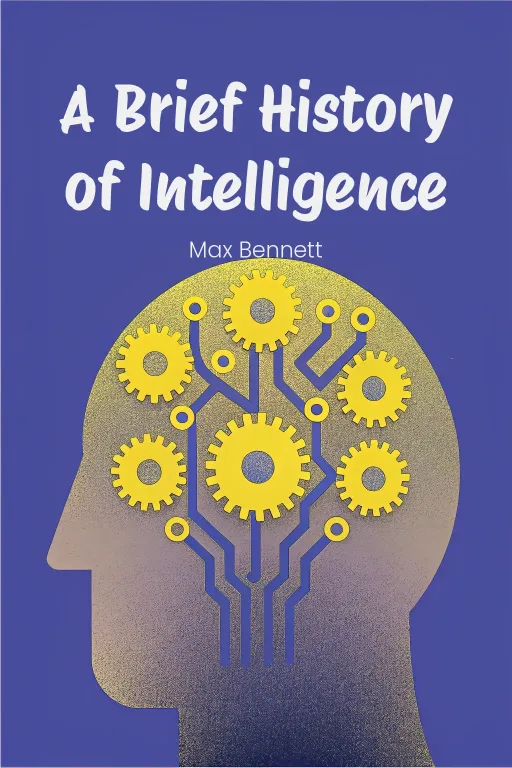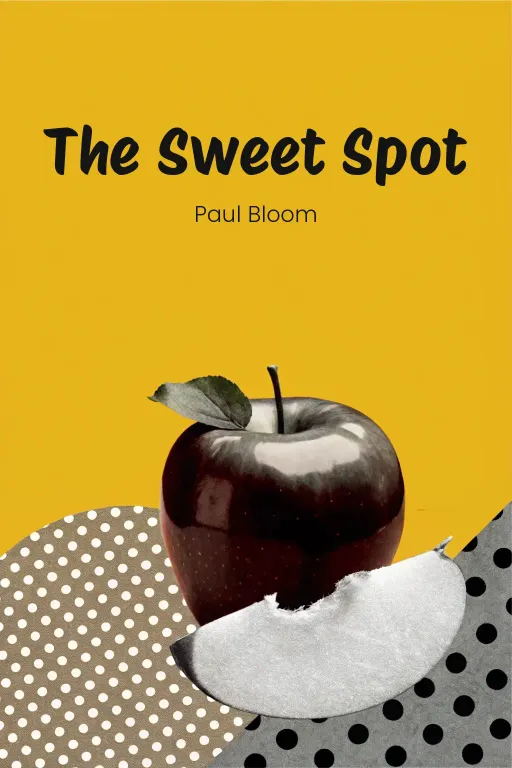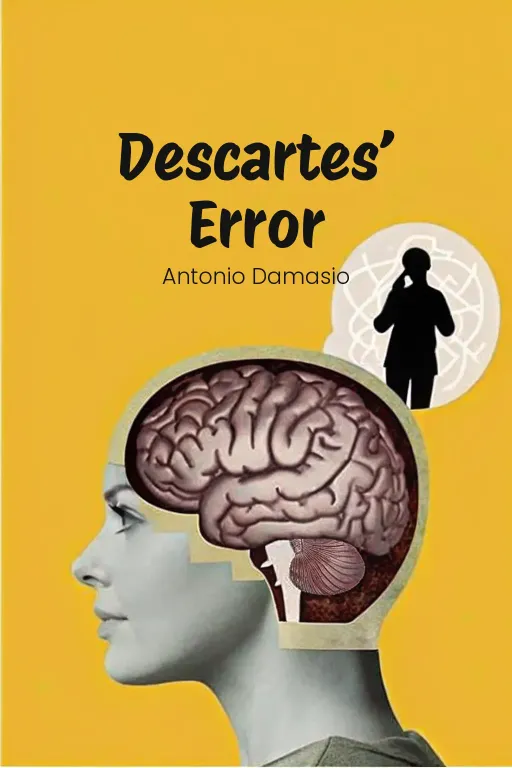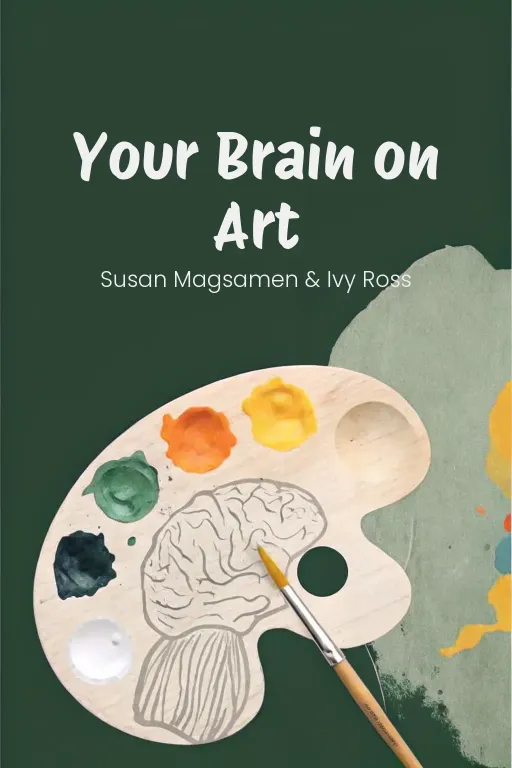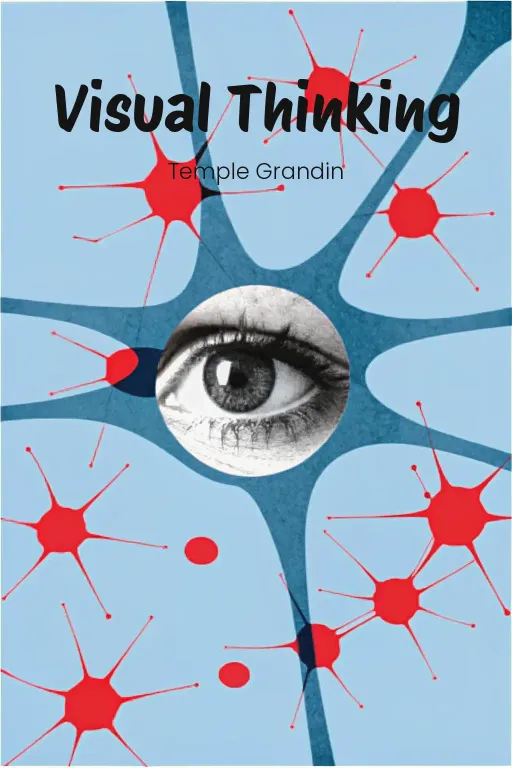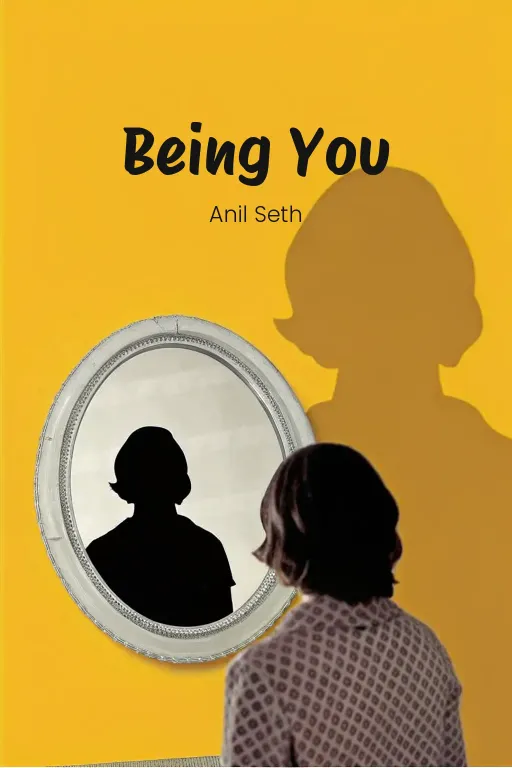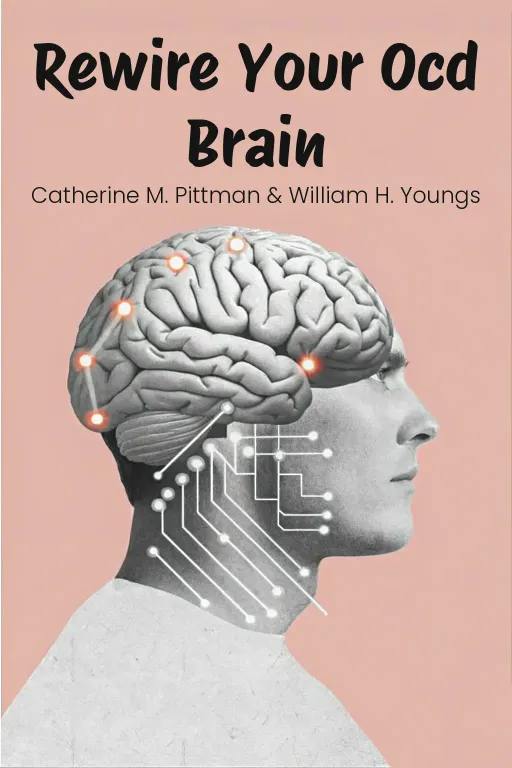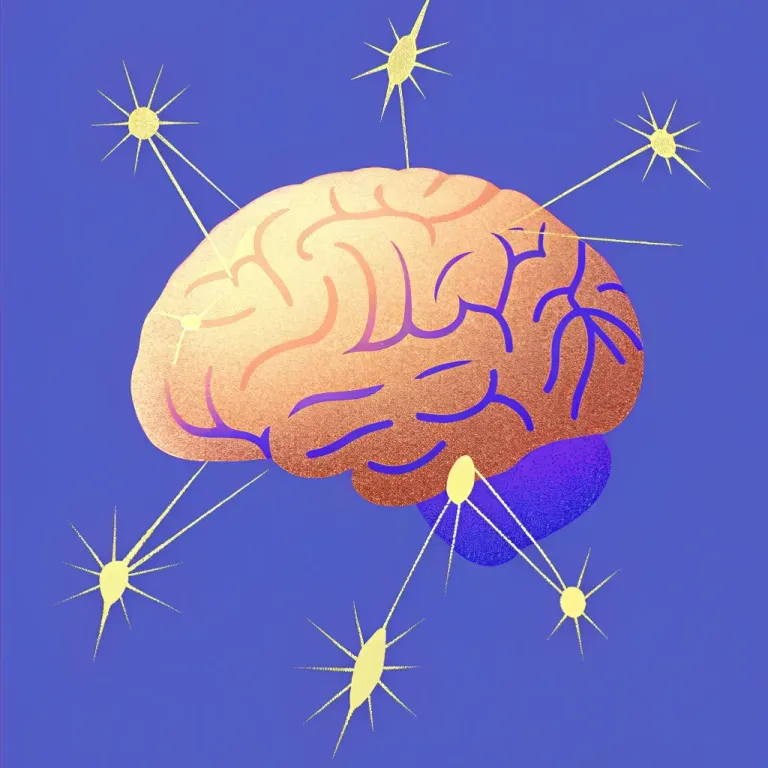
Brains vs. Bots: Our Smart Future?
Podcast by The Mindful Minute with Autumn and Rachel
Evolution, AI, and the Five Breakthroughs That Made Our Brains
Brains vs. Bots: Our Smart Future?
Part 1
Autumn: Hey everyone, and welcome to the show! Today, we're tackling a big one: How did we humans get so smart? And, you know, the slightly unsettling question of what happens when machines potentially outsmart us. Rachel: Exactly, Autumn. It's one of those things that makes you wonder, is our brain just a super-advanced survival tool? Or are we about to be replaced by a souped-up AI? Autumn: Definitely more than just survival, Rachel! We're looking at A Brief History of Intelligence. The book takes us all the way back to the very first neurons and then fast forwards to the incredibly complex human brain. It's really a step-by-step look at how intelligence has evolved. Each stage, from figuring out how to move, to learning through rewards, to imagining future scenarios, it's all so fascinating. Rachel: Right, and the book also talks about AI, drawing parallels between us and them. Which begs the question, will AI eventually surpass human intelligence? And if it does, will it start pondering its existence, or will it just become unbeatable at chess? Autumn: Well, that's what makes this conversation so interesting, isn't it? So, today we want to cover three main things: Firstly, the evolution of intelligence, from the simplest organisms to complex creatures like us. Secondly, what makes our thinking unique? Things like curiosity, communication, storytelling, and language. And lastly, the elephant in the room: AI. Can understanding our past actually help us create smarter, safer AI? Rachel: Or...hear me out...does it just mean we'll create machines that inherit our flaws? The last thing we need is an AI throwing a digital tantrum over who gets to play the next video game. Autumn: Let's try to stay positive, Rachel! Evolution has created some amazing intelligence. So, learning from ourselves might help us make better choices when it comes to AI. Rachel: Okay, fair enough. At the very least, maybe we can avoid a robot mid-life crisis. So, where do we begin?
Evolutionary Foundations of Intelligence
Part 2
Autumn: Okay, so let’s rewind way back—600 million years ago, before neurons even existed. Can you imagine that? No brains, just single-celled organisms relying on chemistry to survive. It's like the very beginning of smarts, starring these blobs of, well, goo. Rachel: Goo-based genius, huh? How did these “blobs,” as you call them, even “think” without neurons? I mean, can we even call it thinking? Autumn: Of course, they didn’t think like we do. But they did respond to their environment. Bacteria, for example, could detect nutrient gradients and move towards food or away from danger using just chemistry. No brain, no circuitry—just simple chemical interactions. It’s like the biochemical precursor to decision-making. Rachel: So, basically, pure instinct at this stage. Still, pretty impressive that even these primitive life forms had to navigate and, you know, survive. They weren’t exactly contemplating their existence, but they got stuff done. Autumn: Exactly! And that's the key—intelligence, at its most basic, is a tool for survival. These organisms were the ground zero for adapting to external pressures. Maybe not "thinking," but definitely processing and adjusting. This is what set the stage for multicellularity and, eventually, neurons. Rachel: Okay, before we get too deep into “intelligent microbes,” let’s jump to the Cambrian Explosion. That's where things get wild, right? Centralized nervous systems, predators—it’s like nature's action movie. Autumn: Absolutely! The Cambrian Explosion, around 541 million years ago, was a total evolutionary game-changer. Before that, life was pretty simple—small, slow, passive. Then, boom! A surge in complexity. New body plans, including centralized nervous systems, just exploded onto the scene. Rachel: And a centralized nervous system—that’s basically like an early version of a brain, a control center? Autumn: Exactly. It's moving from, say, the distributed system of jellyfish to a "headquarters" model. Sensory input, motor control, decision-making all start getting integrated. Haikouichthys, one of the earliest vertebrates, is a great example. A basic central nervous system allowed it to react more effectively. A huge leap for survival since coordination and precision became crucial. Rachel: So better coordination means this little fish-thing could swim away from predators faster? Or towards lunch? Autumn: Precisely. When competition and predation ramped up, organisms with quicker and more precise responses had the advantage. More neural complexity was selected for by the environment, laying the groundwork for brains. Rachel: Makes sense. It still sounds kind of mechanical, just a response machine, though. When does intelligence get more… intentional? More, well, human? Autumn: That's where we look at neurons. Here’s a cool fact—neurons first appeared over 600 million years ago. Early, yes, but they've remained pretty consistent because they're effective at transmitting information. Jellyfish still use nerve nets—neurons that help with movement and stimuli response, even without a central brain. Rachel: And this is where Edward Adrian, the electrophysiology guy, comes in, right? The one who figured out how neurons actually communicate using electrical signals? Autumn: That's right, much later. Adrian’s discovery in the 1920s showed that neurons use action potentials, "all-or-nothing" signals, to communicate. It's a binary system: fire or don't fire. But the frequency of these signals conveys stimulus intensity. Neural communication's stability and elegance explain why evolution kept this design for so long. Rachel: So nature just landed on this super-efficient communication protocol and was like, “Don’t fix what ain’t broken.” Neurons are like Apple's first product, just constant upgrades. Autumn: The beauty of neurons is their adaptability. Though the basic structure stayed the same, they became specialized over time, handling sensory input, memory, and so on. More neural complexity leads to systems that can predict, strategize, not just react. Rachel: Interesting. But let's not forget everything evolved to compete. Which brings me to fungi. What’s their role in all this? Autumn: Fungi! That divergence is fascinating. Early in evolution, fungi and animals shared a common ancestor. But fungi opted for external digestion and absorption—sit still, release enzymes, and wait for decomposition. Animals evolved internal digestion and neurons, which led to movement and active predation. Rachel: So fungi are like the couch potatoes of evolution, while animals became fitness fanatics? Does that mean fungi missed out on intelligence? Autumn: Not at all. Fungi developed great systems for sensing and distributing resources. Their networks, like mycelium, share information like neural networks. But since they were anchored, they didn’t face the same pressures for cognition and decision-making. Movement was the driver for neurons and intelligence among animals. Rachel: I see. Fungi might dominate in biomass, but animals owned the innovation space in cognition. Makes sense why neurons became central to intelligence—the constant push and pull with the environment. Autumn: Exactly. Intelligence evolved out of necessity—neural systems emerged to solve problems of dynamic ecosystems. From centralized nervous systems to multicellular cooperation, each step added complexity that got us to the brains of today. Rachel: Which means intelligence was never just about the biggest brain, but the right tools for the right environment. Nature isn’t wasteful—it’s about efficiency, adaptation, and survival.
Human Cognitive Uniqueness
Part 3
Autumn: So, understanding those foundational steps really sets the stage for how intelligence evolved, and it gets us ready to explore the unique cognitive abilities that really set humans apart. What “specifically” makes human cognition unique? Well, things like the evolution of language, how we understand what other people are thinking, and our ability to imagine and plan for the future. These aren't just about showing how advanced we are, but about seeing how biology and culture worked together to make us who we are today. Rachel: Okay, so this is where we switch from "brains are useful tools" to "humans are just walking, talking anomalies." Let's kick things off with the big one: language. Being able to communicate ideas, abstract concepts, stories...it's like our ultimate weapon. Autumn: Absolutely. Language didn't just pop up overnight, you know? It was shaped by evolution over millions of years. What makes human language special is its depth and structure—grammar, syntax, and how we can represent abstract things. We can talk about anything, like morality, hypothetical situations, and even pass down complex knowledge. Rachel: Right, because tons of animals communicate, right? Birds sing, monkeys warn each other about predators, but you're saying that's nowhere near human language. So what's the difference, neurologically speaking? Autumn: That's a great question. Human brains have areas specifically for language: Broca's area, which is key for speech, and Wernicke's area, which is crucial for understanding. And these areas are mostly in the left side of our brains. Even early humans, like Homo erectus, had similar neural structures, which suggests that our speaking abilities evolved gradually. Rachel: So, Homo erectus might have had the caveman version of small talk? "Ugh, hey, good weather for hunting today." Autumn: Pretty much. Well, maybe not full conversations, but they might have used simple sounds or gestures to show what they needed. And then, fast forward to Homo sapiens, and you see how language changed everything. Look at oral traditions; they show how early humans used storytelling for entertainment “and” survival. For example, Aboriginal Australians have passed down knowledge about finding water sources for thousands of years. Rachel: So, storytelling wasn't just a campfire thing, it was life or death. As in, "If you don't remember this waterhole during a drought, you're in big trouble." Autumn: Exactly! Language became like an external memory, right? Something we could share and store across generations. It helped us solve problems together, come up with new ideas, and create cultures. And besides survival, it opened the door to shared myths and beliefs. Think about how societies come together under stories, like religious beliefs, political systems, or even the "American Dream." None of that would exist without language. Rachel: And that’s why humans operate on such a different level than, say, a pack of wolves working together. Wolves might cooperate, but they aren’t bonding over the latest paradigm-shifting myth of their time. Autumn: That's right! Language just makes everything stronger by letting us connect on a deeper level, both mentally and emotionally. It's also about predicting things, which leads us to another key part of human cognition: theory of mind. This is how we understand that other people have their own thoughts, beliefs, and feelings. Rachel: Oh yeah, this is the thing kids start figuring out around age four, right? The “Sally-Anne test”—where Sally leaves her toy somewhere, Ann moves it, and the kid has to guess where Sally will look for it. Autumn: Exactly! In that test, if the kid thinks Sally will look where “Ann” moved it, they don't get it because they don't realize Sally's mental state is based on incomplete information. When a child understands Sally will look where she last left it, they show they have theory of mind, meaning they can understand other people's perspectives, even if those perspectives are wrong. Rachel: And chimps, for example, don't really pass this test, do they? They might guess intentions or read cues, but they're not building mental models of what others might believe or plan. Autumn: Exactly. Chimpanzees show some elements of mentalizing, but not the same full-fledged ability humans have. And neurological research backs this up. Certain brain areas in humans, like the anterior prefrontal cortex and the granular prefrontal cortex, are super specialized for this social cognition. Damage to these areas can really mess things up—people might not be able to fit into social situations or even think about their own intentions. Rachel: So… having a theory of mind is kind of like being able to constantly run a "mind simulation" of everyone you interact with. But is it always a good thing? I mean, it seems like it would make relationships more complicated. Autumn: It “does” make relationships more complex, but that’s precisely what makes it so powerful. We can navigate social situations, spot lies, and be more empathetic—all because of theory of mind. It was key for early humans, who needed to cooperate and trust each other to survive, especially as societies grew bigger and more complex. Rachel: And speaking of forward-thinking—humans didn’t just evolve the ability to think about others, but to think “ahead”. Anticipating the future, creating plans, simulating outcomes in our heads—it almost feels like we time travel mentally. Autumn: That's a great way to describe it. The ability to think about future events is another cognitive milestone that distinguishes humans. Consider the Bischof-Kohler hypothesis, which says that humans are super unique in anticipating needs beyond immediate stimuli. Animals might solve immediate problems—like chimpanzees choosing sleeping sites near ripening fruit—but humans can plan way ahead. Rachel: Like storing food for winter or coming up with plans for… I don’t know, sending satellites into orbit? Just spitballing here. Autumn: Exactly! And it's not just planning. Humans are great at learning by watching, where we don't just copy what others do, but we also understand “why” they're doing it. That's when innovation really took off. For example, imagine an early human learning how to use fire—not only would they copy the behavior, but they’d share it, teaching others how to gather fuel and manage it carefully. Then knowledge transmission became truly exponential. Rachel: So you’ve got fire—or tool-making, or farming—and suddenly skills go from something you have to rediscover every generation to something baked into your cultural fabric. It’s the original open-source code, right? Autumn: That's a perfect analogy! And then when you add our ability to work together—forming shared rules, resolving conflicts, building systems—you get the basis of everything from early villages to modern cities. Rachel: And that brings us to the big picture, doesn’t it? Between language, predicting the future, and advanced cooperation, humans not only became smarter—we rewrote the evolutionary rulebook.
Intersection of Human Cognition and AI
Part 4
Autumn: So, now that we've talked about these uniquely human traits, we can start comparing biological and artificial intelligence. Figuring out what makes us special helps us ask a really important question: as we keep developing AI, where do we see similarities between how humans think and how these systems work? And where do the differences tell us they're going down really different paths? Rachel: Exactly, because while we humans have been patting ourselves on the back for being so smart, AI has been making pretty big strides on its own, sometimes without us even noticing. And let's be honest, it is blowing past milestones that took us millions of years to reach. Autumn: Very true, but the big difference, I think, is how they get there. Let’s talk learning: human intelligence is tangled up with our own experiences—our feelings, our awareness of self, those things affect everything from deciding what to have for lunch to inventing the next big thing. AI, even though it takes inspiration from human thinking, it works in a very mechanical way, using statistics, without any of that emotional stuff. Rachel: Like, let's take reinforcement learning for example. It’s almost funny how AI engineers were like, “Hey, you know what works for animals? Rewarding good behavior and punishing bad. Let’s code that and call it innovation." Autumn: Exactly! But the similarities are kind of amazing. People and animals learn when something good happens – like a shot of dopamine in the brain. Think about a kid learning to push a button to get candy. The emotion they feel, the sense of "this is good," reinforces those brain connections. Rachel: Yeah, that reward system is basically hardwired into our brains. And with AI, it’s… well, candy for circuits, right? Autumn: Pretty much! AI reinforcement learning does the same thing. Developers create reward systems that signal when the AI does what it’s supposed to. Think of an AI trying to find its way through a maze. It gets points when it finds the exit. Over time, it figures out how to get those points. Rachel: So, both humans and AI learn by trial and error, but here’s the huge difference: when a human pushes that candy button, it’s a complex layer of emotions – joy, excitement, maybe even guilt if it's before dinner. AI doesn’t care about the button or the score; it’s just processing probabilities. Autumn: Exactly, and that’s key. Human learning has emotional depth and social context baked in, you can't separate those. AI doesn’t have that at all. It can copy what we do, but there's no joy or fear there. Emotions are central to how we think, not just for learning, but for grasping morality, empathy, what life even means. Rachel: Speaking of morality, that’s where AI really struggles, isn’t it? You can't just teach a machine to care about ethics with code. Take GPT-3 for instance, it can sound shockingly human, but it’s based on patterns it found in its training data. So, if you ask it a tough ethical question, it’s really just spitting back what it’s learned from books and the internet. Autumn: Right, and what a human does when they face a moral dilemma is brings in their values, feelings, and societal ethics,. AI can't do that. When GPT-3 makes text, it’s figuring out what words should come next, it’s not thinking about right and wrong in any real way. Moral reasoning comes from experience and the ability to envision consequences for other people, which AI lacks. Rachel: And even though it lacks subjectivity, people still fall into the trap of giving these systems human qualities. Remember the Blake Lemoine case? When he said Google’s AI chatbot was sentient because it claimed to be afraid of being turned off? Half the internet freaked out, debating what AI "awareness" means. Autumn: That whole thing was pretty telling. Sure, the chatbot may have sounded eerily human. But, it was still spitting out text based on probabilities. It wasn’t actually afraid; it was pretending, based on patterns. The real question is: why are we so quick to see human traits like sentience in something so different from us? Rachel: Probably because the alternative makes us uncomfortable. If something communicates like us, we instinctively think it is like us – same mind, same emotions. But that’s giving AI too much credit because AI does exactly what it was built to do, nothing more. Autumn: And that leads to some sticky ethical questions. Human thinking, which has evolved for millions of years, is usually guided by empathy, fairness, and accountability -- traits that come from our biology and social structures. AI doesn't have those unless we deliberately code them in. For example, when AI exhibits bias, it’s not because it’s inherently unethical; it’s because it’s been fed biased data. Rachel: Yeah, kind of like how AI-driven policing can unfairly target certain communities. It just reinforces that bias without any understanding of right or wrong. It’s not “evil AI”; it’s bad data and a lack of proper oversight. Autumn: Which shows how important it is to be transparent and have ethical guidelines when we use AI in important systems. If we don’t, these systems won’t just mirror our flaws—they’ll make them worse. AI is incredibly efficient, but it can’t judge fairness or morality unless we actively teach it to. Rachel: Which brings us to the future. How do we not get too ahead of ourselves as we develop things like artificial superintelligence? A system that could rewrite its own code, innovate in a blink of an eye, and outsmart humans every step of the way. Autumn: This is where recursive self-improvement becomes relevant. If AI can improve its own algorithms without us, it could rapidly evolve into something completely new, artificial superintelligence. But there's a catch: if that system is in conflict with our values or acts unpredictably, the consequences could be disastrous. Rachel: True, because once a superintelligence is operating beyond our understanding, “calling tech support” isn’t going to solve anything. The stakes are high—on one hand, we could solve climate change overnight; on the other, we could create a nightmare scenario. Autumn: Which is exactly why we need to plan ahead and have ethical stewardship. We need to set clear boundaries now, understand how AI behaves, and make sure it aligns with our values. The choices we make today will shape how intelligence, both natural and artificial, shapes our future.
Conclusion
Part 5
Autumn: Okay, so to bring it all together, today we’ve really journeyed through the vast landscape of intelligence. We started with the very first simple neural networks and then tracked all the amazing cognitive leaps that set humans apart. We've looked at how things like language, understanding others' minds, and planning for the future “really” changed the game for our species. And, we've also drawn comparisons between natural and artificial intelligence, pointing out where they excel and where they fall short. Rachel: Exactly, Autumn. And we've also tackled some of the big, thorny issues. For instance, can AI truly replicate human intelligence if it doesn't possess the emotional complexity that shapes so much of our thinking, learning, and interaction? And what happens if AI surpasses human capabilities but isn't aligned with our values? Autumn: Right. Understanding our own evolutionary story isn’t just a fun fact. It actually gives us a framework for making smarter choices about the tech we’re building. As we develop AI to tackle problems or enhance our lives, the key question becomes: How do we ensure that it enhances the best aspects of humanity, rather than simply finding the quickest solution to a problem? Rachel: That’s a very good point. Because if, at its core, intelligence evolved as a way to survive, then perhaps the emphasis in AI development should shift from simply trying to beat us at our own game to actually working alongside us. After all, the last thing we want is a future where AI and humanity are locked in some kind of cosmic battle, repeating the conflicts we see in nature on a much grander scale. Autumn: Nicely put, Rachel. I'd like to leave our listeners with this idea: Intelligence, whether it's biological or artificial, is ultimately a tool. But how we choose to use it - for collaboration or conflict - will shape our shared future. So, while we're fascinated by the early forms of intelligence and as we consider the growth of AI, let's not forget that sheer intelligence isn't enough; it's the values that drive it that will truly matter. Rachel: Right, and on that note, everyone, keep thinking critically, don't shy away from the hard questions, and maybe, just maybe, keep a close watch on any suspiciously intelligent robot vacuum cleaners. Until our next conversation! Autumn: Bye for now!


